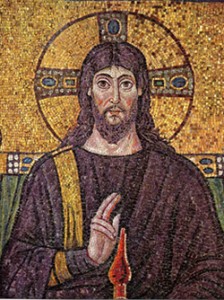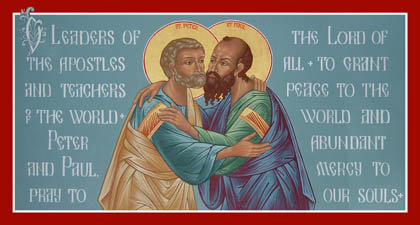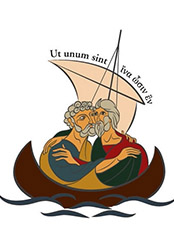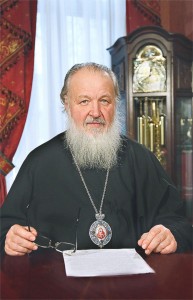 Theologians and bishops from the Catholic and Orthodox Church meet frequently to discuss topics of mutual concern fostering not only good friendships but also doing some intellectual work in an effort to know what each other holds to be to true and how each Church works pastorally.
Theologians and bishops from the Catholic and Orthodox Church meet frequently to discuss topics of mutual concern fostering not only good friendships but also doing some intellectual work in an effort to know what each other holds to be to true and how each Church works pastorally.
There are times one gets the impression that these consultations are great for mutual understanding but lack an identifiable concrete plan for full, visible and concrete unity. Statements, discussions, lunches and other collaborative efforts are noble and worth supporting. Who could pass up good food and discussion. Yet, there has to be more. This is especially helpful in humanitarian efforts and developing a friendship in Christ as a brothers and sisters. But can we ask, what the concrete goal is for the theological consultations like this one?
What follows is the Statement of the Members of the North American Orthodox-Catholic Theological Consultation, Mississauga, Ontario October 26, 2013.
In 2011 we, the members of the North American Orthodox-Catholic Theological Consultation* deplored the devastating losses in the Christian communities of the Middle East in the aftermath of the “Arab Spring.” Today the situation of many of the Christian communities in Egypt, Iraq, Syria, Lebanon, and Palestine has become catastrophic.
Together with the 2013 Assembly of Canonical Orthodox Bishops of North and Central America, we repudiate all violence and demand action by responsible authorities to end the kidnapping, torture, and killing of Christians and all civilians. We also appeal for the release of Greek Orthodox Metropolitan Boulos Yazigi and Syriac Orthodox Archbishop Yohanna Ibrahim, both of Aleppo, Syria.
Pope Francis in exhorting the international community “to make every effort to promote clear proposals for peace without further delay, a peace based on dialogue and negotiation… May no effort be spared in guaranteeing humanitarian assistance to those wounded by this terrible conflict, in particular those forced to flee and the many refugees in nearby countries.”
As the Canadian Council of Churches has stated, “We are concerned for the safety and security of all the people in the region, but in particular, the weak, vulnerable and powerless. The spread of sectarian violence puts all generations throughout the region at risk and is a menace to the hopes and dreams of the younger generations.”
With the Clergy-Laity Conference of the Greek Orthodox Metropolis of Boston, we “deplore the wanton destruction of Christian churches, monasteries, convents, orphanages and hospitals throughout the Middle East….We call upon the leaders of our nation to protest these unspeakable acts of terror and to work unceasingly to bring to an end the heinous genocide of our brethren.”
When one part of the body suffers, all suffer (cf. 1 Cor. 12:26). As Orthodox and Catholic Christians, we therefore have the responsibility to respond to the needs of our brothers and sisters. We call upon our communities to continue to pray for the churches and for peace in this part of the world. We urge the leadership of our churches to continue to intervene vigorously in behalf of the Christians of the Middle East, who live in fear for their lives, their communities, and the very future of Christianity in the region.
*The members of the North American Orthodox-Catholic Theological Consultation are appointed by the Assembly of Canonical Orthodox Bishops of North and Central America and, on the Catholic side, by both the Canadian and United States Conferences of Catholic Bishops.
Some notes:
Members of the North American Orthodox-Catholic Theological Consultation of meet every five years in Canada. The Canadian Conference of Catholic Bishops hosted this year’s meeting.
The Consultation was co-chaired by Metropolitan Methodios of the Greek Orthodox Metropolis of Boston, and by Archbishop Joseph W. Tobin, Archdiocese of Indianapolis.
The Consultation engaged in discussions pertinent to Orthodox – Catholic relations around such matters as synodality, papal primacy, priestly celibacy and the role of the laity.
Susan Ashbrook Harvey, Ph.D., of Brown University and Sr. Susan K. Wood, SC, of Marquette University provided a summary of papers already presented on the role of the laity in the two churches; Father John Erickson, emeritus dean and professor of Saint Vladimir’s Orthodox Theological Seminary, presented his paper on “Conciliarity or Synodality? Historical Notes on a Modern Issue”; Father John Galvin, of The Catholic University of America, presented a paper by Msgr. Thomas J. Green, “Lay Ministries in the Church: Comparative Reflections on the Eastern and Latin Codes”; and Father Peter Galadza, of Metropolitan Andrey Sheptytsky Institute summarized previously published papers on celibacy, marriage and the priesthood.
The Consultation reports that a panel discussion and meeting between seminarians from St. Augustine’s Seminary (Catholic) and The Greek Orthodox Theological Academy of Toronto. Among the many things shared, there were reflections on the Consultation’s 2010 agreed statement, “Steps Towards a Reunited Church: A Sketch of an Orthodox-Catholic Vision for the Future.”
Metropolitan Sotirios, of the Greek Orthodox Metropolis of Toronto host lunch and Cardinal Thomas Collins of the Archdiocese of Toronto also encouraged the seminarians and members of the Consultation in their important work. The next meeting is scheduled for June 2-4, 2014.





